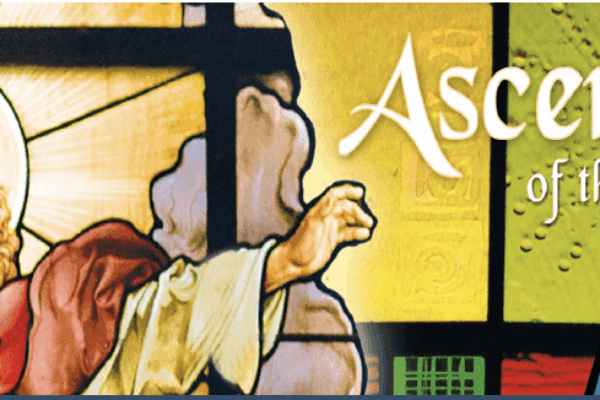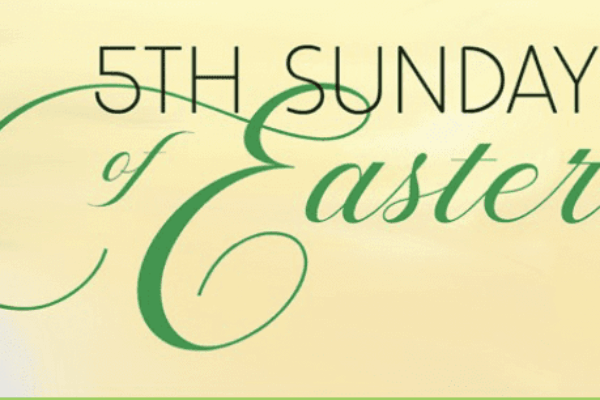Solemnity of the Saints Peter and Paul
To All the Friends of the Epiphany
Solemnity of the Saints Peter and Paul
Keys and Sword: One Church, Two Apostles, One Mission
(13 Week in Ordinary Time, Mathew 16:13-19, 29 June 2025)
In the Gospel today, Solemnity of the Holy Apostles Peter and Paul, Jesus says to Simon, whom he named Peter: I will give you the keys of the kingdom of heaven (Mathew 16:19). This is why we often see Saint Peter depicted with two large keys in his hand, as in the statue here in this Square. Those keys represent the ministry of authority that Jesus entrusted to him at the service of all the Church. Because authority is a service, and authority that is not service is dictatorship. Let us be careful, though, to understand well the meaning of this. Peter’s keys, in fact, are the keys of a Kingdom, which Jesus does not describe as a safe or a vault, but with other images: a tiny seed, a precious pearl, a hidden treasure, a handful of leaven (See Mathew 13:1-33), that is, like something precious and rich, yes, but at the same time small and inconspicuous. To reach it, therefore, one does not need to activate mechanisms and safety locks, but to cultivate virtues such as patience, attention, constancy, humility, service. Therefore, the mission that Jesus entrusts to Peter is not to bar the doors to the house, permitting entry only to a few select guests, but rather to help everyone find the way to enter, in faithfulness to the Gospel of Jesus. Everyone, everyone, everyone can enter. (Pope Francis, Angelus, 2024)
Dear Brothers and Sisters in Christ Jesus
Today we celebrate two pillars of the Church—Saints Peter and Paul—not simply as heroic individuals, but as signs of God’s living action in the world. Their feast is not just about history; it is about our identity and mission as the Epiphany of the Mother Church. In the Gospel today, Jesus speaks to Simon, saying: I will give you the keys of the kingdom of heaven. With these words, Jesus entrusts to Peter not just authority, but a profoundly spiritual responsibility. This moment, dear friends, is not political—it is ontological. It signals a transformation of being, a new mode of service rooted in divine commission.
Authority as Service
Philosophically speaking, this encounter touches upon the very nature of authority and freedom. Authority, in its most authentic form, is not domination but relational responsibility. As Gabriel Marcel reminds us, true authority is not imposed from without but arises from fidelity to persons and truth. Jesus gives Peter the keys not to lock others out, but to open the way for others to encounter the Kingdom. Notice, Jesus does not say: Here are the keys to a fortress. He speaks of a kingdom—one that He has just described through parables in Matthew 13: a mustard seed, a pearl, a treasure, leaven in dough. These are quiet, subtle, and transformative realities. They do not require control, but careful cultivation. They are not about exclusion, but about invitation and growth.
The Keys and the Cross
Theologically, the keys represent the power to bind and loose, but within the logic of the Gospel, this power is radically redefined by the Cross. The Cross reveals that God’s authority is love, poured out to the point of death. Thus, Peter’s authority must always be cruciform—it must mirror Christ’s own self-emptying (Philippians 2:6–11). Saint Paul helps us understand this in his own life. Though not given keys like Peter, Paul embodies the mission to open the doors of the Church to the Gentiles. His entire ministry is one of radical inclusion, echoing today’s message: Everyone, everyone, everyone can enter. Authority, then, is not a privilege but a burden of love. It is not about closing doors, but laying down one’s life so that others may walk through them.
Keys of Humility and Constancy
Jesus entrusts Peter not with iron gates, but with keys that fit into the locks of the human heart: humility, patience, constancy, and service. These are not dramatic virtues, but daily ones. They are not grand gestures, but quiet fidelity. This is the kind of leadership the Church must continue to exercise. Not harsh, but holy. Not selective, but generous. Not fearful, but trusting in grace. The Church is not a private club with exclusive entry. It is a home for the poor, the wounded, the searching, the saint and the sinner alike. Peter himself knew this painfully. He denied Christ. Yet Jesus did not take back the keys. Instead, He forgave him and confirmed his mission: Feed my sheep. This teaches us that even our failures can be redeemed for service, when we return to Christ in humility.
Portraits: Peter and Paul
Saints Peter and Paul are not merely historical or theological figures; they represent two distinct but complementary existential modes of Christian being. Through their vocations, personalities, and missions, we can philosophically read their lives as two paradigms of human response to divine call: Peter as the figure of rootedness and stability, and Paul as the figure of dynamism and transcendence.
Peter: The Existential Archetype of Stability and Belonging
Being-in-Relation
Peter’s character reflects being-in-the-world as rootedness. He is the fisherman; the one called from the shores of familiarity. In Heideggerian terms, Peter represents the human condition of facticity—being already embedded in a world, a culture, a profession. Jesus meets him in that concrete situation and transforms it: Follow me.
Authenticity through Failure
Peter’s journey is marked by existential struggle—especially through denial and redemption. Like Kierkegaard’s knight of faith, Peter must pass through despair to arrive at authenticity. His greatness is not in unshakable certainty but in vulnerability—he falls, but returns. His leadership is therefore deeply pastoral, born not of pride, but of brokenness made whole by grace. Peter’s authority—his keys—is not a possession but a response to the Other, particularly to Christ and then to the Church. In Levinasian terms, Peter’s self is constituted not by mastery but by responsibility for the face of the Other. He is charged with feeding the flock, not ruling it; hence, his role is ontologically oriented toward relational service.
Paul: The Existential Archetype of Freedom and Transcendence
Conversion as Ontological Reorientation
Paul’s Damascus experience is a profound example of existential reorientation. Like Sartre’s notion of radical freedom—or better yet, Augustine’s restlessness—Paul undergoes a shift not just in belief but in being. The persecutor becomes the apostle. His identity is not inherited but received, not static but dynamic: It is no longer I who live, but Christ who lives in me (Gal 2:20). Paul’s life illustrates logotherapy in the deepest Christian sense. Imprisoned, beaten, rejected, Paul does not lose meaning—he finds it precisely in giving himself to something greater. In Viktor Frankl’s terms, Paul is the one who, having found his why (Christ), can endure any, how. His writings and journeys are driven by a profound freedom-for-service.
Universality and Reason
Educated in Hellenistic thought, Paul often appeals to reason and conscience, speaking to Greeks, Romans, and Jews alike. His speech at the Areopagus (Acts 17) reveals a Platonic intuition: the Unknown God, glimpsed in the mind, is now made known in Christ. He translates the Christian message into a universal Logos, accessible to all peoples. Philosophically, Peter and Paul stand in dialectical tension, like thesis and antithesis, or form and freedom. Peter represents structure, continuity, and the visible Church. Paul represents movement, creativity, and the Church’s outward thrust. One guards the identity of the Church; the other pushes its boundaries. Together, they realize what Hegel might call a synthesis—a unity that transcends opposites without erasing them. Peter and Paul together mirror the two poles of the human soul: the need for rootedness and the thirst for transcendence, the love of the familiar and the call of the unknown. In each of us, there is a Peter and a Paul—one who longs for home, and one who is driven to go beyond it.
Closing Summary: Walking in The Footsteps of the Apostles Peter and Paul
Dear Epiphany, to know Peter and Paul is to see how their lives embody different paths to the same truth—Christ. Peter reminds us that grace meets us in our fragility and community. Paul teaches that grace transforms us through freedom and mission. One is the rock; the other, the trumpet. One holds the keys; the other carries the Word. Together, they reveal that the Community of Epiphany is both foundation and frontier, both home and journey—and that the human soul, in Christ, is called to be both grounded and sent.
Dear Epiphany, let us thank God for the complementarity of Peter and Paul—Peter, the shepherd with keys of mercy; Paul, the preacher with words of fire. One rooted in the structure of the Church, the other in its missionary soul. Together, they form a living tension that keeps the Church both grounded and moving, faithful and expansive. Let us ask: What are the keys we hold? Perhaps, they are words of encouragement, acts of forgiveness, a listening heart. Let us not bury them in fear, but use them to help others enter the mystery of Christ. For in the end, the keys of the Kingdom are not meant to lock but to liberate. And everyone from the epiphany community—yes, everyone—is invited to enter.
Fraternally
Fr. John Peter Lazaar SAC, Pastor
The Most Holy Body & Blood of Christ
To All The Families of the Eucharistic Lord Corpus Christi Sunday: The Most Holy Body and Blood of Christ Corpus Christi: Love Made Bread From Need to Gift—The Eucharist as…
The Most Holy Trinity & Father’s Day
To All the Members of the Trinitarian Life of the Epiphany The Most Holy Trinity Sunday: (La Solennità della Santissima Trinità) The Mystery of the Trinity: Three Divine Persons, one Truth,…
Pentecost
To All the Families of Pentecost of the Epiphany Pentecost Sunday From Our Hearts to Our Pews: Holy Spirit, Come! (John 20:19-23; 08 May 2025) Today, Solemnity of Pentecost, we celebrate…
The Ascension of Our Lord
To All the People of the Ascension of Our Lord of the Epiphany Ascension: Fulfillment, Mission, and Hope (The Seventh Sunday of Easter: The Ascension of Our Lord, Luke 24:46-53,…
6th Sunday of Easter – Memorial Day
To All the Marian Devotees of the Epiphany The Gift of the Spirit: Teacher of Truth, Guardian of Memory (The Sixth Sunday of Easter, John 14: 23-29, 25 May 2025) …
5th Sunday of Easter
To All the Marian Devotees of the Epiphany of the Month of May Today, Choose to Love Like Jesus: Be Patient, Forgive Freely, Serve Humbly, Love Generously (The Fifth Sunday…
4th Sunday of Easter
To The Epiphany Family Hearing, Knowing, Following: The Tender Call of the Good Shepherd The Fourth Sunday of Easter, John 10: 27-30, (11 May, 2025) The Fourth Sunday of the Season of…
3rd Sunday of Easter
All the Marian Pilgrims of the Resurrection of Hope and Mercy Three Embers of Denial, Three Sparks of Love-by Galilee’s Shore: The Shepherd Rekindles the Heart of the Lost Lamb The Third…
May: dedicated to Mary, the Mother of God
To All the Marian Devotees of Mary the Queen of Heaven: Wrap Us in Your Mantle This May (01 May 2025) The month of May is upon us, a month which the…

















